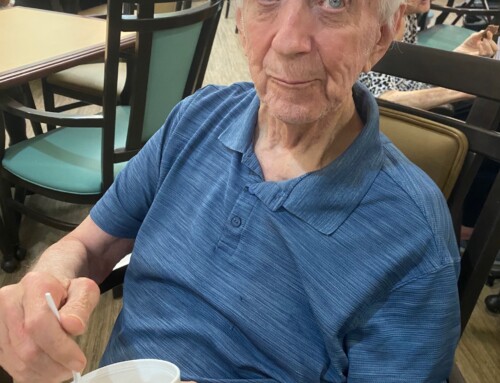One of the realities of growing older is that you will deal with grief. Whether the death of friends or the death of a spouse, grief can be challenging to process. For those who love a grieving person, knowing what to say or how to act can be challenging. The bereaved experience profound emotions, including depression, guilt, anger, and intense sadness. People around a grieving loved one can feel uncomfortable expressing their empathy, making the individual feel even more isolated.
However, do not allow your discomfort to prevent you from reaching out to someone who needs your support. The good news is, you don’t have to provide answers or advice. The mere presence of someone who cares will help to cope with the pain.
Tips for Assisting a Grieving Loved One
The primary advice from experts is not to let your trepidation about saying the wrong thing stop you from reaching out to someone you love who is in pain.
- Emphasize that you are available to listen
- Resist characterizing their grief or judging their response – everyone grieves differently.
- Ask if there are any practical ways you can help – run errands or do laundry, for instance.
- Don’t disappear after the funeral – be consistent in your presence.
Understanding the Grieving Process
There is no “correct” way to grieve, nor is there an acceptable time frame for grief to be “over.” Grief occurs in unpredictable ways, and someone who seems fine one day can have an emotional episode the next. Refrain from managing your loved one’s responses or telling them how they should be feeling.
A grieving person may scream into their pillow, obsess about the details of their loved one’s last days, or lash out in anger at those trying to help them. It is essential not to take these episodes personally. Reassure your loved ones that you understand and are there for them. While experts estimate the grieving process to be approximately 18-24 months (before they emotionally process the death), it may be longer or shorter according to the individual experience.
What To Say to a Grieving Person
Most of us rehearse what we will say to a grieving loved one, but it is far more important to tell yourself just to listen. The bereaved need to feel that you acknowledge their grief, that it is ok to talk about their feelings, and their loved one won’t be forgotten. Follow their lead – if they want to cry, offer your shoulder and a high. If they want to share memories, don’t be afraid to do so. If they want to talk about the circumstances surrounding the death, let them do so. All of these are valid forms of expression, and your appropriate response can bring great comfort.
Many people think they should avoid speaking about the deceased person, believing that mentioning their name will be too painful. But no one wants to forget a loved one or pretend they didn’t exist. Ask your grieving loved one if they feel like talking. Let them guide the conversation, but don’t unnaturally steer away from every mention of their loved one.
Examples of what to say:
- “I heard that your father died. Do you want to talk?”
- “I’m sorry to hear that this happened.”
- “Is there anything I can do to help you today?”
Let them talk about the story of their loved one’s death. Retelling the story makes it easier to process over time. Simply being available to listen is helping them to heal.
At A Banyan Residence, we are deeply committed to the health and well-being of all our residents – whether emotional or physical health is at stake. If you are looking for a compassionate and professional assisted living residence for your loved one, we invite you to visit our facility in The Villages.







